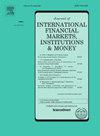全球最大基金的道德排斥对股市和企业的影响
IF 6.1
2区 经济学
Q1 BUSINESS, FINANCE
Journal of International Financial Markets Institutions & Money
Pub Date : 2025-05-16
DOI:10.1016/j.intfin.2025.102174
引用次数: 0
摘要
我们调查了股票市场和公司道德动机的投资组合排除的后果。全球最大的主权财富基金——挪威“石油基金”的撤资,为机构投资者普遍排斥的股票提供了一个样本。我们估计这种“不道德的投资组合”的回报溢价(alpha)约为5%。我们还考虑了那些被石油基金排除在外的公司。对于这个“新道德公司”的投资组合,我们没有发现未来的回报溢价。我们调查这些结果在多大程度上与石油基金的行为直接相关。我们没有找到因果关系的证据。我们调查企业对排斥的反应。在被排除在外的公司中,只有14%的公司对其业务进行了足够的改变,从而使排除被撤销。本文章由计算机程序翻译,如有差异,请以英文原文为准。
The stock market and corporate consequences of ethical exclusions by the world’s largest fund
We investigate the stock market and corporate consequences of ethically motivated portfolio exclusions. The divestments by Norway’s “Oil Fund,” the world’s largest SWF, provide a sample of stocks facing widespread exclusions by institutional investors. We estimate a return premium (alpha) of about 5% for this “unethical portfolio.” We also consider firms where the oil funds’ exclusion has been reversed. For this portfolio of “newly ethical firms” we do not find a return premium going forward. We investigate to what extent these results can be directly linked to the Oil Fund’s actions. We do not find evidence of a causal link. We investigate the corporate reactions to exclusions. Only 14% of the excluded firms make sufficient changes to their operations for the exclusions to be revoked.
求助全文
通过发布文献求助,成功后即可免费获取论文全文。
去求助
来源期刊
CiteScore
6.60
自引率
10.00%
发文量
142
期刊介绍:
International trade, financing and investments, and the related cash and credit transactions, have grown at an extremely rapid pace in recent years. The international monetary system has continued to evolve to accommodate the need for foreign-currency denominated transactions and in the process has provided opportunities for its ongoing observation and study. The purpose of the Journal of International Financial Markets, Institutions & Money is to publish rigorous, original articles dealing with the international aspects of financial markets, institutions and money. Theoretical/conceptual and empirical papers providing meaningful insights into the subject areas will be considered. The following topic areas, although not exhaustive, are representative of the coverage in this Journal. • International financial markets • International securities markets • Foreign exchange markets • Eurocurrency markets • International syndications • Term structures of Eurocurrency rates • Determination of exchange rates • Information, speculation and parity • Forward rates and swaps • International payment mechanisms • International commercial banking; • International investment banking • Central bank intervention • International monetary systems • Balance of payments.

 求助内容:
求助内容: 应助结果提醒方式:
应助结果提醒方式:


